Lutein
How to submit an article:
- Registered users can submit any published journal article that has a unique DOI (Digital Object Identifier) name or link to Research Hub.
- For example, you can paste the full DOI link:
https://doi.org/10.1109/5.771073or just the DOI name:10.1109/5.771073into the field above and click submit. - The person who is first to submit a valid article to Research Hub will forever be credited for it, and every article submission earns you +6 Research Points.
Related Topics
Published research studies are articles that present the findings of original research that has undergone a peer-review process and has been made publicly available in scholarly journals, books or other media.

Propolis protects ovarian follicular reserve and maintains the ovary against polycystic ovary syndrome (PCOS) by attenuating degeneration of zona pellucida and fibrous tissue
2022 Dec Biochemical and Biophysical Research Communications Sapmaz T, Sevgin K, Topkaraoglu S, Tekayev M, Gumuskaya F, Efendic F, et al.
In conclusion, a lower dose of propolis (50 mg/kg) exerts more therapeutic effects than a higher dose (150 mg/kg) in rats with PCOS, while the excessive consumption of propolis has no further therapeutic effect.
Network Pharmacology Animal Study Ovarian Insufficiency Propolis PCOS
Lutein and Zeaxanthin and Their Roles in Age-Related Macular Degeneration—Neurodegenerative Disease
2022 Feb 16 Nutrients Mrowicka M, Mrowicki J, Kucharska E, Majsterek I
Lutein and zeaxanthin, obtained from sources like dark leafy vegetables and fruits, play a crucial role in defending against oxidative stress and scavenging free radicals. These carotenoids, concentrated in the macula of the retina, are essential for eye health. Specific binding proteins, StARD3 for lutein and GSTP1 for zeaxanthin, facilitate their accumulation in the retina. Supportive therapy with lutein and zeaxanthin has been shown to delay the progression of eye diseases, such as age-related macular degeneration (AMD) and cataracts. The article provides insights into the metabolism and bioavailability of these carotenoids, emphasizing the importance of consuming xanthophyll-rich foods.
Review Article Age-Related Macular Degeneration Zeaxanthin
Crocus sativus (saffron) petals extract and its active ingredient, anthocyanin improves ovarian dysfunction, regulation of inflammatory genes and antioxidant factors in testosterone-induced PCOS mice
2022 Jan Journal of Ethnopharmacology Moshfegh F, Balanejad SZ, Shahrokhabady K, Attaranzadeh A
Experimental Study Animal Study Saffron PCOS Anti-Inflammatory Hormonal ImbalanceSaffron petal extract and anthocyanins can alleviate symptoms of Polycystic Ovary Syndrome by rectifying hormonal imbalances and reducing inflammation in PCOS mice.
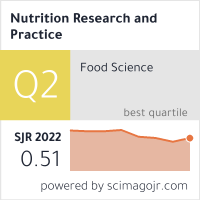
Effect of isoflavone supplementation on menopausal symptoms: a systematic review and meta-analysis of randomized controlled trials
2022 Jan Nutrition Research and Practice Kang I, Rim CH, Yang HS, Choe JS, Kim JY, Lee M
Meta-Analysis Systematic Review Soybean Isoflavone MenopauseIsoflavone supplementation noticeably impacts menopausal symptoms and hormonal changes in postmenopausal women.
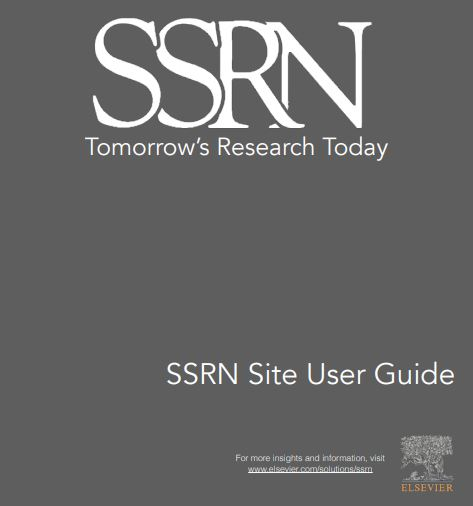
The Nutraceutical potential of Carrots carotenoids in Chronic Eyes Defects (CEDs): A Review
2021 Jan SSRN Electronic Journal Taiwo EA, Abdulkareem TT, Fajemisin E
Review Article Nearsightedness Cataracts Age-Related Macular Degeneration Glaucoma CarrotPhytochemicals in carrots, particularly carotenoids, are effective at reducing eyesight degeneration and treating chronic eye defects due to their antioxidant and anti-inflammatory properties.
Research insights are moderated by the Research Hub team and offer an at-a-glance overview of interesting research findings.

2022 Journal of Ethnopharmacology
Saffron petal extract and anthocyanins can alleviate symptoms of Polycystic Ovary Syndrome by rectifying hormonal imbalances and reducing inflammation in PCOS mice.
Experimental Study Anti-Inflammatory Hormonal Imbalance PCOS Saffron
Crocus sativus (saffron) petals extract and its active ingredient, anthocyanin improves ovarian dysfunction, regulation of inflammatory genes and antioxidant factors in testosterone-induced PCOS mice
Moshfegh F, Balanejad SZ, Shahrokhabady K, Attaranzadeh A

2022 Nutrition Research and Practice
Isoflavone supplementation noticeably impacts menopausal symptoms and hormonal changes in postmenopausal women.
Meta-Analysis Isoflavone Menopause Soybean
Effect of isoflavone supplementation on menopausal symptoms: a systematic review and meta-analysis of randomized controlled trials
Kang I, Rim CH, Yang HS, Choe JS, Kim JY, Lee M

2021 SSRN Electronic Journal
Phytochemicals in carrots, particularly carotenoids, are effective at reducing eyesight degeneration and treating chronic eye defects due to their antioxidant and anti-inflammatory properties.
Review Article Age-Related Macular Degeneration Carrot Cataracts Glaucoma Nearsightedness
The Nutraceutical potential of Carrots carotenoids in Chronic Eyes Defects (CEDs): A Review
Taiwo EA, Abdulkareem TT, Fajemisin E
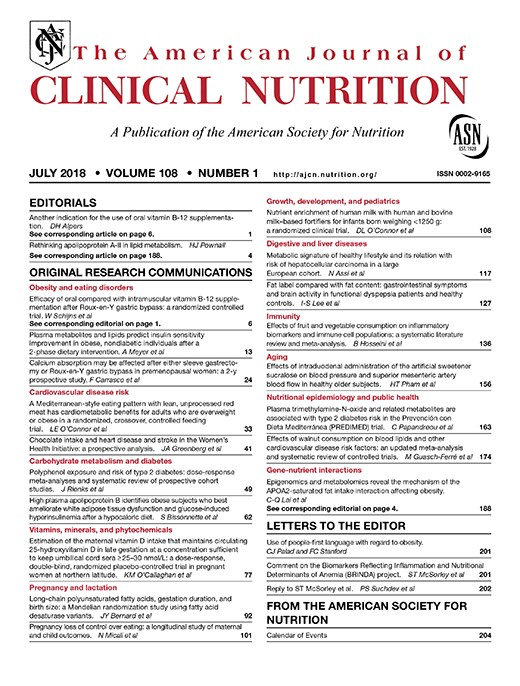
2020 The American Journal of Clinical Nutrition
A botanical formula of lutein ester, zeaxanthin, and extracts from blackcurrant, chrysanthemum, and goji berry can effectively lessen eye fatigue and improve macular function.
Randomised Controlled Trial Blackcurrant Chrysanthemum Dry Eye Eye Fatigue Goji Berry
A novel botanical formula improves eye fatigue and dry eye: a randomized, double-blind, placebo-controlled study
Kan J, Wang M, Liu Y, Liu H, Chen L, Zhang X, et al.

2020 Complementary Therapies in Medicine
Acupuncture enhances Luteinized Unruptured Follicle Syndrome (LUFS) ovulation, hormone levels, artery characteristics.
Systematic Review Ovarian Function Unruptured Follicle Syndrome
Effects of acupuncture on Luteinized Unruptured Follicle Syndrome: A meta-analysis of randomized controlled trials
Xiaojuan Liu, Wenying Shi, Zhifeng Liu, Shuqing Shi, Chao Ke, Peiming Zhang, et al.
Review Articles
Review articles summarise and critically evaluate the current state of research on a specific topic or field by synthesising multiple primary research studies.

Lutein and Zeaxanthin and Their Roles in Age-Related Macular Degeneration—Neurodegenerative Disease
2022 Feb 16 Nutrients Mrowicka M, Mrowicki J, Kucharska E, Majsterek I
Lutein and zeaxanthin, obtained from sources like dark leafy vegetables and fruits, play a crucial role in defending against oxidative stress and scavenging free radicals. These carotenoids, concentrated in the macula of the retina, are essential for eye health. Specific binding proteins, StARD3 for lutein and GSTP1 for zeaxanthin, facilitate their accumulation in the retina. Supportive therapy with lutein and zeaxanthin has been shown to delay the progression of eye diseases, such as age-related macular degeneration (AMD) and cataracts. The article provides insights into the metabolism and bioavailability of these carotenoids, emphasizing the importance of consuming xanthophyll-rich foods.
Review Article Age-Related Macular Degeneration Zeaxanthin
Effect of isoflavone supplementation on menopausal symptoms: a systematic review and meta-analysis of randomized controlled trials
2022 Jan Nutrition Research and Practice Kang I, Rim CH, Yang HS, Choe JS, Kim JY, Lee M
Meta-Analysis Systematic Review Soybean Isoflavone MenopauseIsoflavone supplementation noticeably impacts menopausal symptoms and hormonal changes in postmenopausal women.

The Nutraceutical potential of Carrots carotenoids in Chronic Eyes Defects (CEDs): A Review
2021 Jan SSRN Electronic Journal Taiwo EA, Abdulkareem TT, Fajemisin E
Review Article Nearsightedness Cataracts Age-Related Macular Degeneration Glaucoma CarrotPhytochemicals in carrots, particularly carotenoids, are effective at reducing eyesight degeneration and treating chronic eye defects due to their antioxidant and anti-inflammatory properties.

Effects of acupuncture on Luteinized Unruptured Follicle Syndrome: A meta-analysis of randomized controlled trials
2020 Mar Complementary Therapies in Medicine Xiaojuan Liu, Wenying Shi, Zhifeng Liu, Shuqing Shi, Chao Ke, Peiming Zhang, et al.
Systematic Review Meta-Analysis Ovarian Function Unruptured Follicle SyndromeAcupuncture enhances Luteinized Unruptured Follicle Syndrome (LUFS) ovulation, hormone levels, artery characteristics.

Mechanisms of honey on testosterone levels
2019 Jul Heliyon Banihani SA
Systematic Review HoneyOral administration of honey is associated with increased serum testosterone levels in males, supported by in vivo studies suggesting mechanisms involving luteinizing hormone production, Leydig cell viability, oxidative damage reduction, enhanced StAR gene expression, and aromatase activity inhibition.
The collective evidence, which is mainly based on in vivo system studies, reveals that oral administration of honey increases serum testosterone level in males.
Clinical Trials
Clinical trials are research studies that involve people and are conducted to evaluate the safety and efficacy of new treatments or interventions, such as drugs, medical devices, or behavioural therapies.

A novel botanical formula improves eye fatigue and dry eye: a randomized, double-blind, placebo-controlled study
2020 Aug The American Journal of Clinical Nutrition Kan J, Wang M, Liu Y, Liu H, Chen L, Zhang X, et al.
Randomised Controlled Trial Goji Berry Dry Eye Blackcurrant Lutein Eye Fatigue Zeaxanthin ChrysanthemumA botanical formula of lutein ester, zeaxanthin, and extracts from blackcurrant, chrysanthemum, and goji berry can effectively lessen eye fatigue and improve macular function.
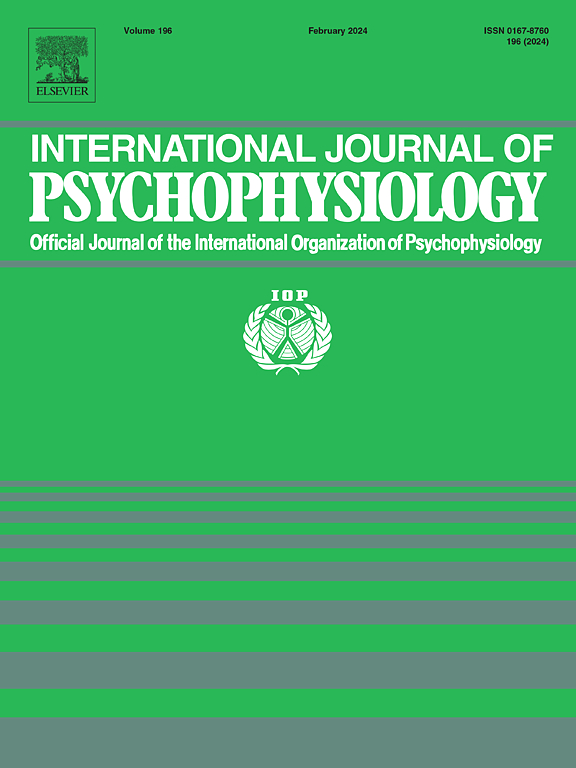
Effects of 12-week avocado consumption on cognitive function among adults with overweight and obesity
2020 Feb International Journal of Psychophysiology Edwards CG, Walk AM, Thompson SV, Reeser GE, Erdman JW, Burd NA, et al.
Randomised Controlled Trial Obesity Avocado Cognitive FunctionDaily avocado consumption improves attentional inhibition and increases serum lutein concentrations, irrespective of changes in lutein status, in adults with obesity.
Study Protocols
Published study protocols are detailed plans that outline the objectives, methodology, statistical analyses, and organisation of a research study that have been made publicly available for others to review and use as a reference.
Presentation Slides

Experimental Study
Saffron petal extract and anthocyanins can alleviate symptoms of Polycystic Ovary Syndrome by rectifying hormonal imbalances and reducing inflammation in PCOS mice.
Moshfegh F, Balanejad SZ, Shahrokhabady K, Attaranzadeh A

Meta-Analysis
Isoflavone supplementation noticeably impacts menopausal symptoms and hormonal changes in postmenopausal women.
Kang I, Rim CH, Yang HS, Choe JS, Kim JY, Lee M

Review Article
Phytochemicals in carrots, particularly carotenoids, are effective at reducing eyesight degeneration and treating chronic eye defects due to their antioxidant and anti-inflammatory properties.
Taiwo EA, Abdulkareem TT, Fajemisin E

Randomised Controlled Trial
A botanical formula of lutein ester, zeaxanthin, and extracts from blackcurrant, chrysanthemum, and goji berry can effectively lessen eye fatigue and improve macular function.
Kan J, Wang M, Liu Y, Liu H, Chen L, Zhang X, Huang C, Liu BY, Gu Z, Du J

Systematic Review
Acupuncture enhances Luteinized Unruptured Follicle Syndrome (LUFS) ovulation, hormone levels, artery characteristics.
Xiaojuan Liu, Wenying Shi, Zhifeng Liu, Shuqing Shi, Chao Ke, Peiming Zhang, Zhenyu Tan, Wei Zhang

Randomised Controlled Trial
Daily avocado consumption improves attentional inhibition and increases serum lutein concentrations, irrespective of changes in lutein status, in adults with obesity.
Edwards CG, Walk AM, Thompson SV, Reeser GE, Erdman JW, Burd NA, Holscher HD, Khan NA

Systematic Review
Oral administration of honey is associated with increased serum testosterone levels in males, supported by in vivo studies suggesting mechanisms involving luteinizing hormone production, Leydig cell viability, oxidative damage reduction, enhanced StAR gene expression, and aromatase activity inhibition.
Banihani SA

Systematic Review
The collective evidence, which is mainly based on in vivo system studies, reveals that oral administration of honey increases serum testosterone level in males.
Banihani SA
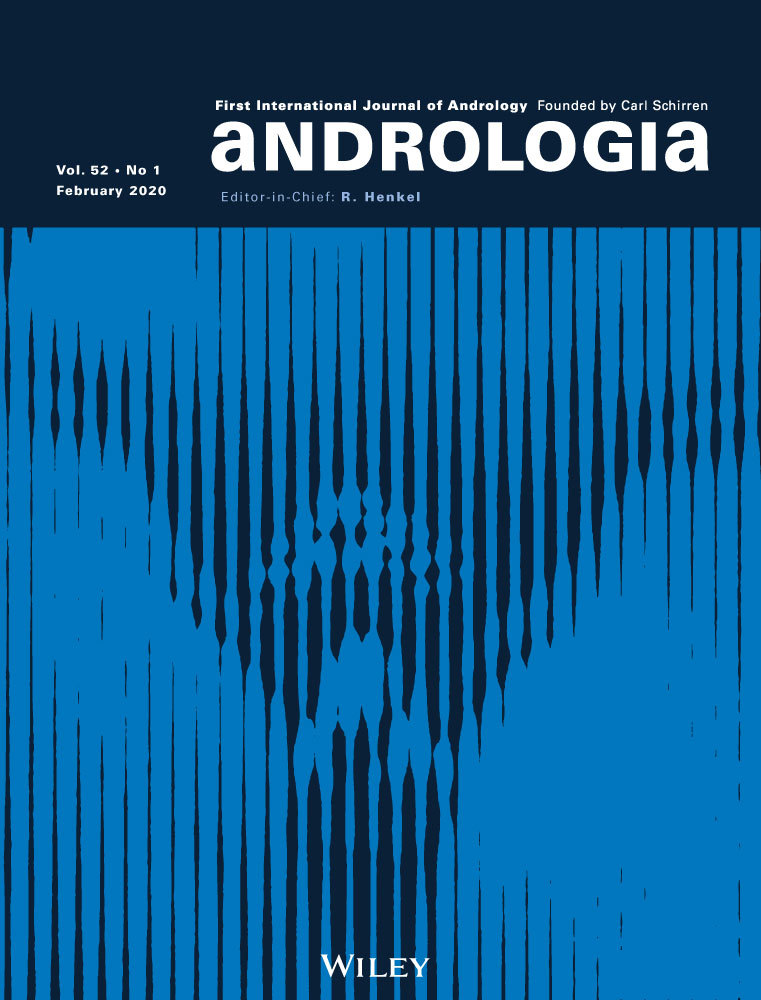
Systematic Review
Ginger enhances semen quality and improves sperm parameters, an impact linked to increased levels of gonadal hormones, decreased cell damage, and valued nutrients in ginger.
Banihani SA
Executive Summary
Write an executive summary in the form of a blog article on the topic of "Research into Chinese medicine treatment for Lutein" summarising the research below and using language that can be easily understood by patients and avoiding medical jargon using a professional and caring tone of voice.
Write an executive summary in the form of a blog article on the topic of "Researched Chinese medicine treatments for Lutein" summarising the research below in an objective and easy to understand way, and using language that can be easily understood by patients. Group the article into Chinese medicine treatments first, followed by nutrition and other treatments. Avoid using medical jargon and use a professional and caring tone of voice.
Write me a concise but easy to understand executive summary on the topic of "Chinese medicine treatments for Lutein" based on the following research that I will give you. Your summary should be 2 paragraphs long in Australian English spelling and include references to the studies.
A Experimental Study published in 2022 in the journal Journal of Ethnopharmacology found that Saffron petal extract and anthocyanins can alleviate symptoms of Polycystic Ovary Syndrome by rectifying hormonal imbalances and reducing inflammation in PCOS mice. The study conducted experiments on mice induced with Polycystic Ovary Syndrome (PCOS) through the injection of testosterone enanthate. These mice were then treated with saffron petal extract and anthocyanins to observe the effect on their ovarian hormones, steroidogenic enzymes, ovarian dysfunction, regulation of anti-inflammatory genes, and antioxidant factors. The treatment was found to decrease the elevated levels of luteinizing hormone, testosterone, and estrogen in the PCOS mice, while reviving the reduced follicular-stimulating hormone and progesterone levels. In discussion of the results, it was observed that saffron petal extract and anthocyanins positively altered the levels of gonadotropin receptors, steroid receptors, inflammatory markers, inflammatory-related factors, and antioxidant enzymes that were affected by the PCOS condition in the subject mice. The study also noted that the reproductive tissues of the PCOS mice, which were converted into androgen-dominant environments by the testosterone enanthate induction, were restored into estrogenic conditions after the treatment. Further findings suggested that saffron petal extract and anthocyanins led to amelioration of PCOS symptoms by enhancing the regulation of ovarian steroids, steroidogenic processes, antioxidant enzyme production, and inflammatory markers.
A Meta-Analysis published in 2022 in the journal Nutrition Research and Practice found that Isoflavone supplementation noticeably impacts menopausal symptoms and hormonal changes in postmenopausal women. In order to examine isoflavones effects on menopausal symptoms and the associated hormonal alterations, a systematic review and meta-analysis were conducted. To do this, the PubMed and EMBASE databases were used, but the selected studies were restricted to random controlled trials (RCTs) assessing isoflavone supplementation's impact on menopausal symptoms. Overall, 11 studies were chosen for the final quantitative evaluation, and the isoflavone intervention amount varied among these studies. The Meta-analysis displayed that supplementing isoflavones meaningfully increased estradiol levels and the Kupperman index (a composite scoring of multiple menopausal symptoms intensity). Yet, there were no significant impacts observed on hot flashes, or the release of two specific hormones: follicle-stimulating hormone and luteinizing hormone. It should be noted that there was a significant inconsistency in estradiol levels and Kupperman index findings among different studies.
A Review Article published in 2021 in the journal SSRN Electronic Journal found that Phytochemicals in carrots, particularly carotenoids, are effective at reducing eyesight degeneration and treating chronic eye defects due to their antioxidant and anti-inflammatory properties. Throughout the review process, seventy original research and review articles were examined, all published between 2000 and 2020 across four major journal databases: Elsevier, PubMed, ResearchGate and Plos One. The focus of the search was directed by six keywords, centring on both in-vivo and in-vitro study results related to the topic of interest. Among the various findings, it was consistently revealed that carrots contain a multitude of bioactive compounds, notably carotenoids, which have been proven to be effective in halting and treating eye degenerations including Nyctalopia, Myopia, Cataracts, Age-related Macular Diseases and Glaucoma. Carotenoids have been found to work as potent antioxidants and anti-inflammatory agents, defending eyes against vision loss due to oxidative stress. Thus, the increased consumption of carrots can potentially serve as a natural therapeutic approach and enhancer of vision.
A Randomised Controlled Trial published in 2020 in the journal The American Journal of Clinical Nutrition found that A botanical formula of lutein ester, zeaxanthin, and extracts from blackcurrant, chrysanthemum, and goji berry can effectively lessen eye fatigue and improve macular function. Research methodology involved the distribution of 360 randomly selected participants into four groups where they received placebos and three varied doses of a botanical formula. This formula, given in chewable tablets comprised of 6 mg, 10 mg, or 14 mg of lutein. Each participant was administered these once daily over a period of 90 days, and had three check-ins at the beginning, at day 45, and finally on day 90 of the study. The results of the study indicated that the botanical formula effectively improved the individual scores of participants on eye fatigue symptoms like eye soreness, blurred vision, dry eyes, foreign body sensation, and tearing. Using the formula resulted in a notable decrease in the total score of eye fatigue symptoms at both the 45-day and 90-day intervals as compared to the placebo while also significantly improving visuognosis persistence time. Tear secretion improvement was observed in the groups having 10mg and 14mg lutein formula, supported by the Schirmer test. Furthermore, the results showed an increase in macular pigment optical density with all three doses of the formula, but no significant alterations were observed in the retinal thickness and retinal volume among all the groups at both check-ins.
A Systematic Review published in 2020 in the journal Complementary Therapies in Medicine found that Acupuncture enhances Luteinized Unruptured Follicle Syndrome (LUFS) ovulation, hormone levels, artery characteristics. This meta-analysis aimed to assess the overall effectiveness and safety of acupuncture for treating Luteinized Unruptured Follicle Syndrome (LUFS) using Randomized Controlled Trials (RCTs). Ten studies with 715 participants were analyzed. Acupuncture, whether used alone or alongside other treatments, significantly improved ovulation rates, as confirmed by Trial Sequential Analysis. However, evidence regarding acupuncture's impact on pregnancy rates was insufficient. The studies also showed improvements in hormone levels and ovarian artery characteristics. The level of evidence for most outcomes was rated as "low" or "very low," emphasizing the need for cautious interpretation. The conclusion suggests that acupuncture, either alone or in combination with drugs, is effective in improving ovulation in LUFS cases. However, due to limited concurrent evidence, further high-quality studies are required to strengthen these findings.
A Randomised Controlled Trial published in 2020 in the journal International Journal of Psychophysiology found that Daily avocado consumption improves attentional inhibition and increases serum lutein concentrations, irrespective of changes in lutein status, in adults with obesity. The study involved a randomized-controlled trial with 84 adults aged 25-45 years suffering from overweight or obesity. The participants were divided into a treatment group and a control group. Those in the treatment group consumed a daily meal with fresh Hass avocado for 12 weeks while the control group was given an isocaloric meal. The xanthophyll status was evaluated by measuring serum lutein and macular pigment optical density, and cognitive functions such as attention and inhibition were evaluated using the Flanker, Oddball, and Nogo tasks. Regarding the results, the treatment group showed improved serum lutein concentrations and better performance in the Flanker task demonstrating improved attentional inhibition. However, they found no correlation between improvements in performance and changes in lutein status and no significant changes in macular pigment optical density. Therefore, it suggests that the cognitive benefits from avocado intake were not due to changes in lutein status but may involve other unknown mechanisms.
A Systematic Review published in 2019 in the journal Heliyon found that Oral administration of honey is associated with increased serum testosterone levels in males, supported by in vivo studies suggesting mechanisms involving luteinizing hormone production, Leydig cell viability, oxidative damage reduction, enhanced StAR gene expression, and aromatase activity inhibition. This systematic review examined research articles retrieved from PubMed, Scopus, and Embase databases (May 1993 to April 2019) using keywords "honey" and "honeybee" versus "testosterone." The analysis, primarily based on in vivo studies, concludes that honey positively impacts serum testosterone levels in males. Mechanistically, honey is proposed to elevate testosterone by stimulating luteinizing hormone production, enhancing Leydig cell viability, reducing oxidative damage, promoting StAR gene expression, and inhibiting aromatase activity in the testes. While the evidence is promising, further human studies, particularly clinical trials, are necessary to validate honey's effect on testosterone. The comprehensive review underscores the potential of honey in elevating serum testosterone levels in males, proposing detailed mechanistic pathways. In vivo studies provide valuable insights into how honey influences hormone production, cell viability, and genetic expression. However, the conclusive confirmation of honey's impact on testosterone awaits further research, specifically in the form of human clinical trials, to strengthen the evidence and bridge the gap between in vivo findings and clinical applicability.
A Systematic Review published in 2019 in the journal Heliyon found that The collective evidence, which is mainly based on in vivo system studies, reveals that oral administration of honey increases serum testosterone level in males. Mechanistically, honey may increase serum level of testosterone by increasing the production of luteinizing hormone, enhancing the viability of Leydig cells, reducing oxidative damage in Leydig cells, enhancing StAR gene expression, and inhibiting aromatase activity in the testes. However, further research studies on humans, mainly clinical trials, in this specific research approach are still needed to confirm the effect of honey on testosterone.
A Systematic Review published in 2019 in the journal Andrologia found that Ginger enhances semen quality and improves sperm parameters, an impact linked to increased levels of gonadal hormones, decreased cell damage, and valued nutrients in ginger. In the methodological approach, this study conducted a systematic review of original research articles listed on Scopus and PubMed. The search terms applied were "ginger," "sperm," and "semen," to find studies published in English from August 2004 to February 2019 that explored the biological effects of ginger or ginger extracts on semen quality and sperm parameters. In the discussion of the results, the main conclusion was that there is clear evidence that ginger betters semen quality and advances primary sperm attributes such as concentration, viability, motility, and morphology. This enhancement is presumably due to increased levels of gonadal hormones, particularly testosterone and luteinising hormone, reduced oxidative damage to cells, increased production of nitric oxide, hypoglycaemic response of ginger, and the presence of valuable nutrients in ginger such as manganese.
Moderation Tools
Topic
Sign In
Users not signed in are limited to viewing the 5 most recent items of content.